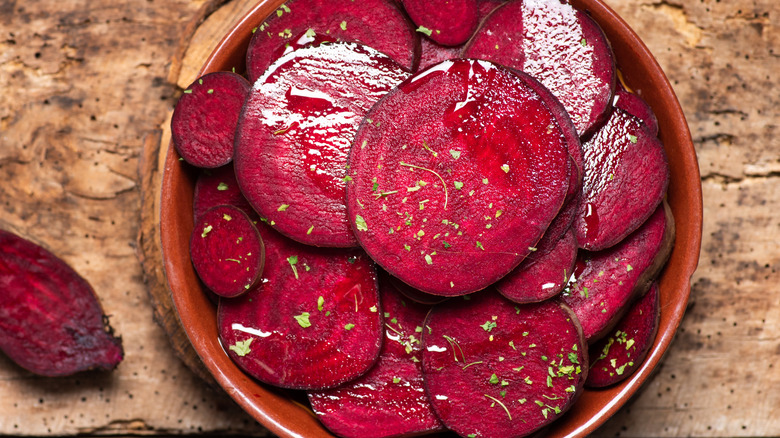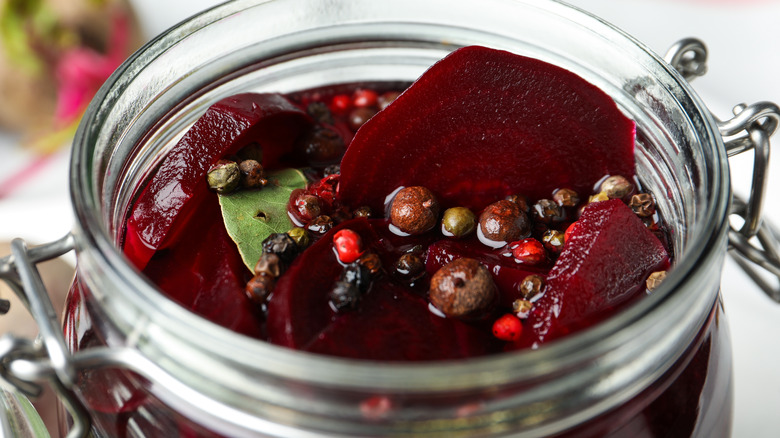The Toxic Reason You Shouldn't Try To Salvage Leftover Beets
Beets are often considered a superfood due to their numerous health properties. These red root vegetables contain magnesium, folate, vitamin C, fiber, and nitrates. Nitrates make beets a popular choice among athletes due to the elevated levels of energy production they supply. Nitrates found in beets have been found to increase oxygen use in the body, according to a study from PubMed, which showed that cyclists improved their performance after drinking beetroot juice. But these same sought-after benefits of beets can be a cause of harm.
When continuously heated and reheated without being cooled correctly, nitrates can convert into nitrites, which can convert into nitrosamines, which can be carcinogenic. Now before you begin tossing out your beets and swearing them off, remember that nitrates themselves are not carcinogenic. In fact, nitrites aren't really the problem either, the main concern is the potential for these to become nitrosamines according to PubMed Central. Even then only some nitrosamines are considered to be carcinogenic, but if you're someone who likes to live on the cautious side regarding your health, you may think twice before reheating your leftover beets.
Heating up nitrates is what can cause them to break down and become potentially harmful. When you continuously reheat up dishes, say like you would reheat leftovers the next few days, you continue the cooking process of your dish and the nitrates inside it. But, it's worth mentioning that the risks are considered low, as you're unlikely to consume a dangerous amount of nitrates. In fact, it's likely that the benefits of eating these root vegetables outweigh any potential risks.
How to properly store and enjoy leftover cooked beets
It is crucial to let your beets come to room temperature before you put them in a sealed container. If you put your food into a sealed container before it cools down the trapped steam coming off the food can continue cooking the meal, even in the fridge. Once cooled, your beets can be stored for up to five days in the fridge.
Since it's not recommended to reheat beets after the initial cooking, you'll want to think of creative ways to enjoy your leftovers without potentially putting your health at risk. You can enjoy leftover beets as part of a salad. Popular salad pairings include walnuts and goat's cheese to complement the earthy flavor of the beets. Or if you're looking to transform your leftovers (and extend their shelf life), roasted beets are perfect to use for pickling. Pickled beets go very well with burgers or as a sandwich topping, and can be enjoyed deliciously on their own.

